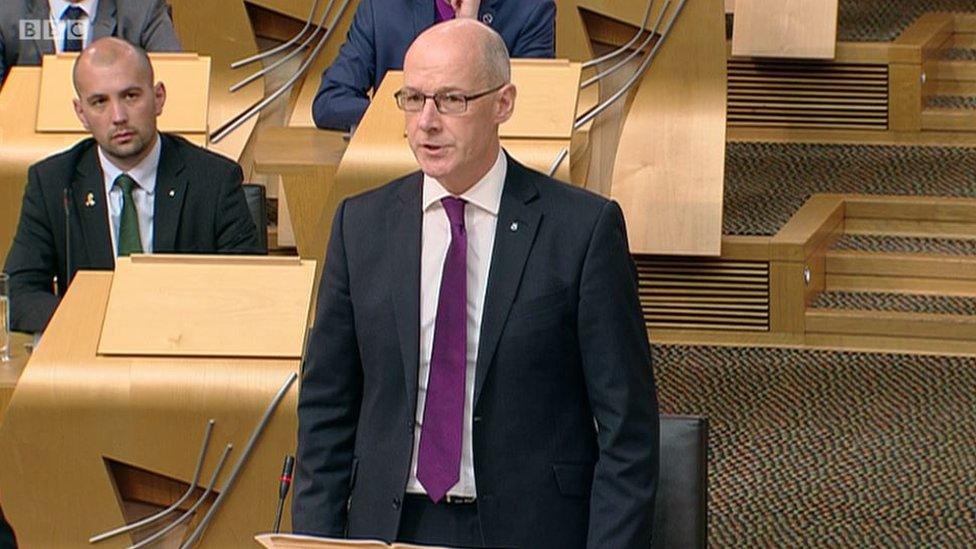'Sweeping' new powers for Scottish head teachers
- Published
- comments
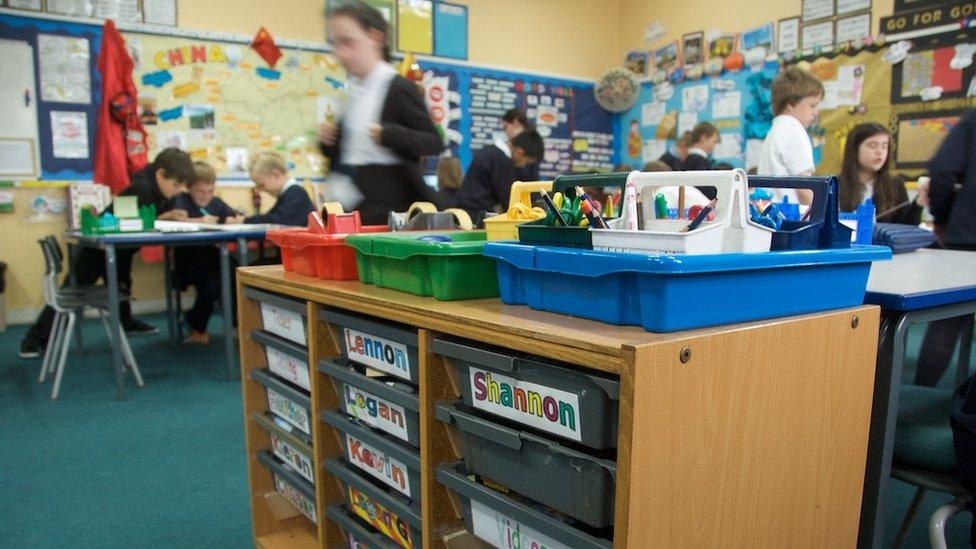
The reforms give sweeping new powers to head teachers
The Scottish government has set out "sweeping new powers" for schools as part of a shake-up of education.
Education Secretary John Swinney said his reforms were aimed at "freeing our teachers to teach".
The reforms will see head teachers take responsibility for closing the attainment gap, choosing school staff and deciding curriculum content.
They also aim to give schools more direct control over funding, with a consultation on fair funding launched.
There was a mixed response from opposition parties, who welcomed parts of the plan, but said others did not go far enough.
And local government organisation Cosla said the plan "erodes local democratic accountability".
The government has been consulting on a review of the education system, amid concerns over an attainment gap between pupils from different backgrounds and declining performance in international rankings.
Mr Swinney said the "simple plan" at the heart of his reforms was to "free our teachers to teach" and "put new powers in the hands of head teachers".
These new powers will be set out in a statutory charter for head teachers, and will include:
responsibility for raising attainment and closing the poverty-related gap in schools
choosing school staff and management structure
deciding curriculum content, within a broad national framework
direct control over more school funding, with a consultation on fair funding launched
However, Mr Swinney said he was "acutely conscious that schools also need support frameworks to function well", insisting councils would still have a "vital" role in education.
The reforms will establish "regional improvement collaboratives" to "pool and strengthen resources to support learning and teaching in schools". These will be led by a regional director, who will report to the chief inspector of education.
The plans will also see a "significant change" to Education Scotland, which will have a "renewed focus on professional learning and leadership" along with "strengthened inspection and improvement functions".
Schools will also have access to a "home to school link worker" to support parents and families.
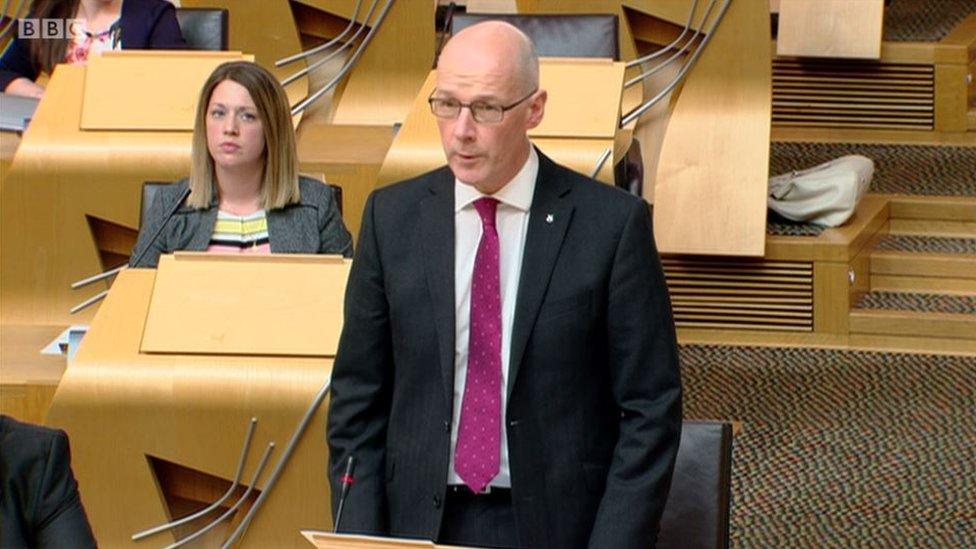
John Swinney set out the reforms in a statement at Holyrood
The education secretary said: "Improving the education and life chances of our children and young people is the defining mission of this government. While there are many strengths in Scottish education, recent Pisa and literacy scores underline that we can, and we must, achieve more.
"We will reform the system so that the key decisions in a child's education are taken by schools.
"Schools will have the freedom to make their own decisions to improve learning and teaching. Everyone else within the education system will have a collective and shared responsibility to support schools.
"We will free teachers to teach. We will put new powers in the hands of head teachers. And we will all - government, councils and public bodies - support our schools."
Cosla, an umbrella group representing local authorities, said the government had "endeavoured to pull off a conjuring trick by pretending councils still have a role in the delivery of education".
A spokesman said: "We will embrace change which promotes better outcomes, but we will resist any change which does not.
"We are clear that what has been announced today erodes local democratic accountability and most certainly will not close the attainment gap."
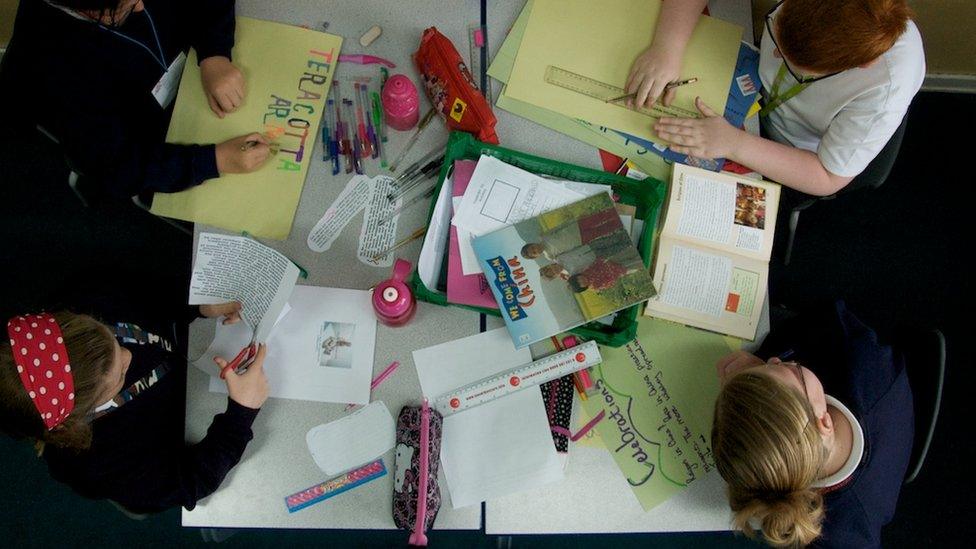
Responding, Scottish Conservative education spokeswoman Liz Smith welcomed the steps to empower head teachers, but said Mr Swinney's reforms did not go far enough.
She said they were "half-baked and only pay lip service to real devolution", calling them "not enough to deal with the root cause of the problems faced".
Labour's Iain Gray meanwhile said the first reform needed was to have more teachers, properly supported and resourced.
He welcomed the fact Mr Swinney had decided against having a centralised national funding solution, but questioned whether the regional organisation board plans would just add another layer of bureaucracy.
Mr Swinney said a formal procurement process for new routes into teaching would begin shortly, although he stressed that any new route would need to meet General Teaching Council for Scotland tests "to maintain credibility and academic rigour".
GTCS Chief Executive Kenneth Muir welcomed the announcement, saying the body was "committed to offering new, flexible routes into teaching" while maintaining that it was "imperative that new teachers are properly qualified and registered".
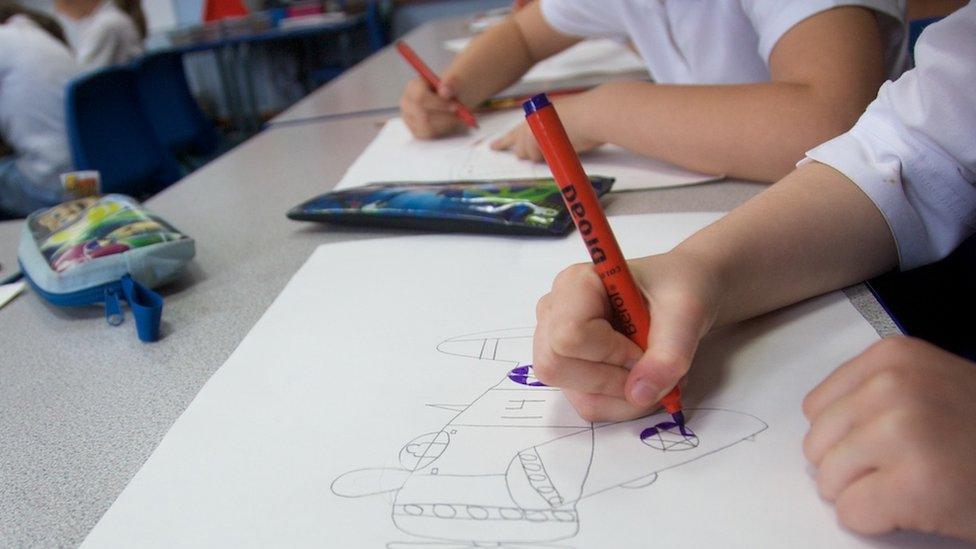
A central aim of the reforms is to improve the attainment gap
Green MSP Ross Greer said the "huge changes simply aren't what teachers, pupils and parents have been asking for", criticising the regional organisational bodies in particular.
He said: "The government's own analysis of the consultation even says there was a 'lack of appetite' for these unaccountable regional bodies."
And Lib Dem Tavish Scott singled out the fact the government was not separating the inspection and curriculum functions of Education Scotland.
He said: "Pupils are let down when the Scottish government is allowed to mark its own homework in this way. Combined with regional boards that shift control towards ministers in Edinburgh, these proposals risk continuing the failed, top down solutions of the past."
The largest teachers' union, the EIS, said in its response to the government's review that the main challenges facing schools were related to funding, resources and staffing.
General secretary Larry Flanagan said: "While it is early in the process, this Review provides an opportunity for a more constructive and consensual approach to education to be re-established which would be a positive step for schools, teachers and pupils.
"It is by schools, local authorities and politicians of all parties, at local and national level, working constructively together, that we can deliver enhancements to our comprehensive education system to ensure it continues to meet the needs of Scotland's young people long into the future."
- Published1 February 2017
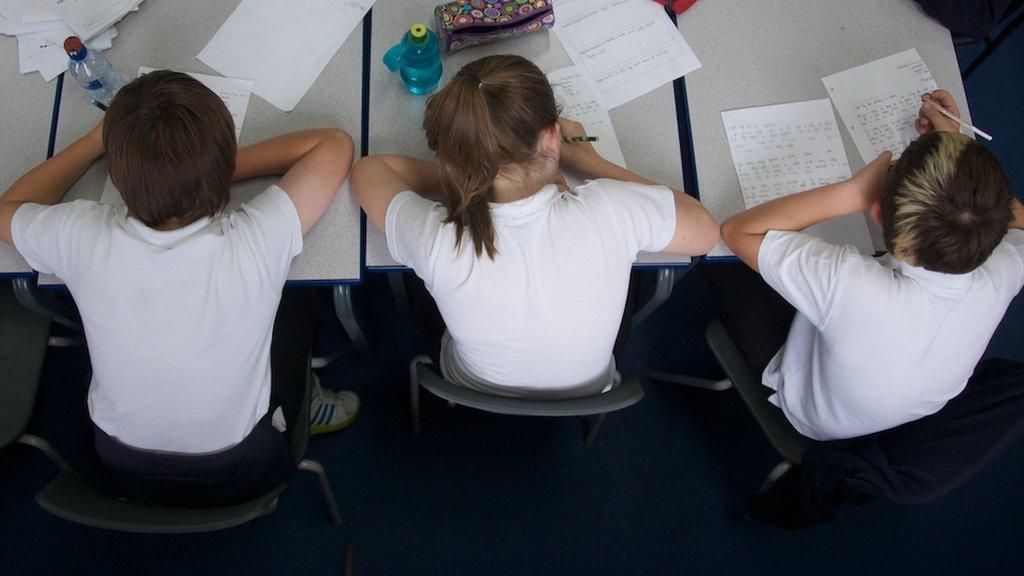
- Published18 September 2016
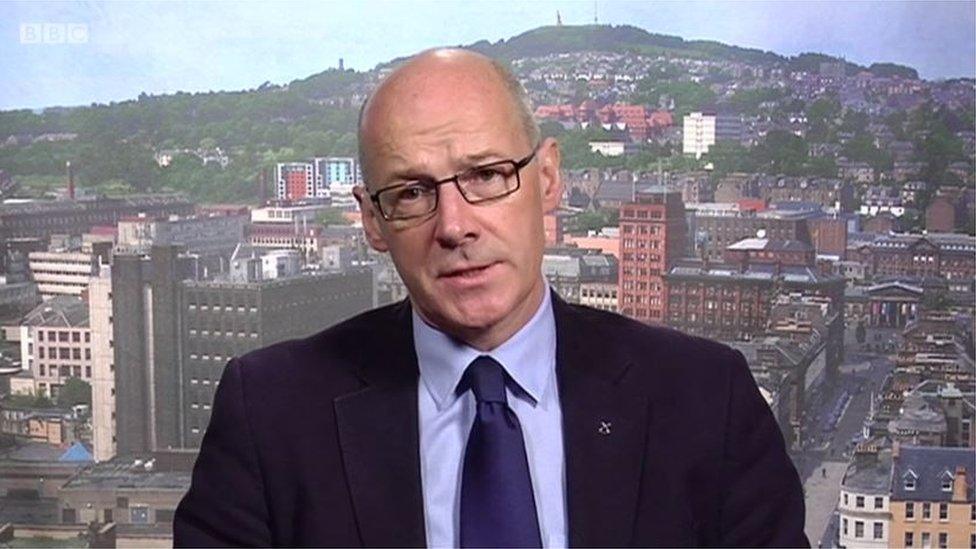
- Published13 September 2016
